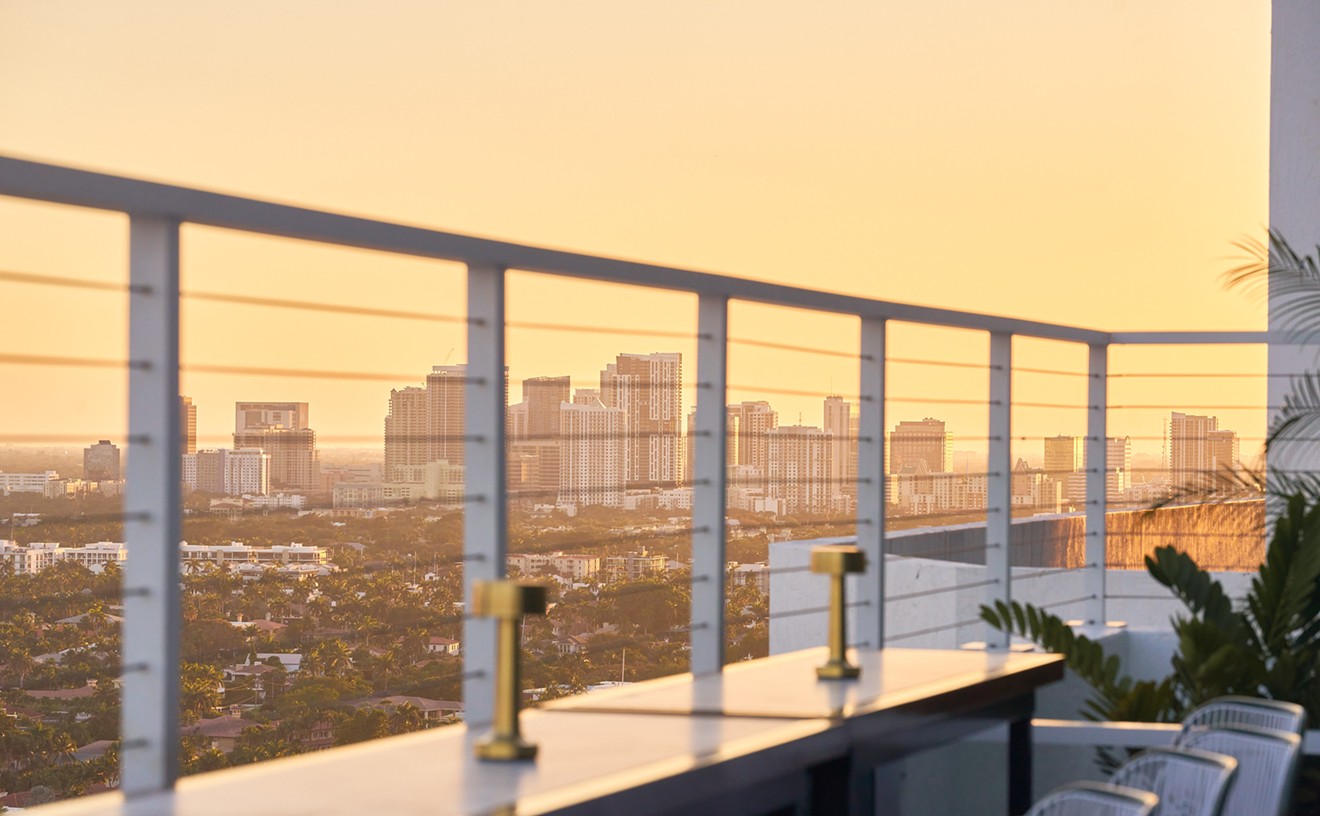The rest of us, however, are concerned enough to make bad service our number-one gripe. The places where we can anticipate polite, proper service are decreasing as rapidly as dew on a 90-degree day. Forget about taking out-of-town guests to dinner. Though not all anecdotes will reach the media-frenzied epic proportions of a Thai Toni experience, no one leaves (or lives in) South Florida without a war story to tell.
What I've discovered, though, is that it's useless to whine and moan, even in print. I've taken individual restaurants to task for eight years now and nothing's changed. The truth is, fixing the problem is impossible if we don't understand what causes it in the first place.
These days almost everyone points to poor attitude as a factor. “Most employees have a transient mentality,” explains Jonathan Eismann of Pacific Time and Westside Diner. “They act like the guest is never coming back. And that trickles down from the top. If it's not the staff that's stupid and lazy, it's the restaurateurs who are.” Blame this one on the tourists, then. Waitstaff and proprietors who seldom see the same faces twice have difficulty distinguishing the locals who just might return.
But that's a cheap distinction, since all restaurant patrons should be treated to the same welcoming behavior. As a matter of fact, notes a recent Restaurants & Industries survey, consumers all over the nation value courteous service, citing it as the third most important reason to return to a restaurant (behind cleanliness and food quality). Why, then, is civility such a high-priced commodity, down here in particular?
The peripatetic nature of Miami could be at fault. Folks move here to party for a few months to a year and then leave. Indeed that club scene plays another role, keeping employees from their jobs the next day, whether the difficulty stems from hangovers or something slightly more serious. Eismann admits that last weekend he had three employees in jail, one of whom was about to get sent down for one to five. “But mostly they get put away for DUIs and things like that,” he says.
Language barriers, resulting from waves of immigration and tourists, are another big issue, argue many restaurateurs. Multiethnic customers can't communicate their wants to multiethnic waitstaff, who in turn may not be able to explain things properly to the diner. I can see it. I've had dissatisfactory service in restaurants where the first language is Spanish, and I don't speak it; on the flip side, Spanish speakers, and Hispanics in general, regularly receive terrible treatment in our more “American” eateries. In many of these cases the perceived rudeness is the result of a misunderstanding or a translation problem. But on the other hand, proprietors may be the ones constructing the barriers all by themselves. Eismann claims the primary reason a restaurant has an unworkable employee is because the boss didn't hire the right one in the first place. In other words when you're in Miami, try bilingual staff.
Staff shortages, though, are the biggest rock slides blocking the way to better service. There's simply no one out there. “The tightest labor market in 30 years combined with a surge of new restaurants in South Florida has made many restaurant owners ... desperate to find good help,” reports the South Florida Business Journal. Of course most of those restaurateurs run big operations and need tons of help. Chef-proprietor Pascal Oudin, of the newly opened Pascal's on Ponce, says he had more qualified applicants than he could hire.
But Joe Wood, general manager of the much larger Armadillo Cafe in Davie, agrees with the findings in South Florida Business Journal. “There's a gazillion more restaurants looking for people, but there's not the staff out there,” he comments. And it's not just that the labor pool is shallow or that the collective lack of experience could sink the best-run restaurant in town. Potential employees don't even know how to dress for an interview. The last time Wood interviewed candidates for waitstaff positions, he says he dismissed 90 percent of them based on first impressions alone. “You want to be an equal-opportunity employer,” he offers. “But these applicants were coming in wearing jeans and tank tops, chewing gum and with tattoos on their fingers.” Biker fashions may be in today, but in upscale-restaurant dining rooms, they're as taboo as serving a glass of wine with your finger on the rim.
Wood points out that conversely, “you find more of an explosion of better kitchen help” thanks to culinary schools like Johnson & Wales. But would-be servers don't have the advantage of formal academic training. On top of that, no one aspires to be a waiter anymore, unless you're talking to a 25-year Joe's Stone Crab veteran, who makes enough money to take off an entire summer.
One of the ways to keep good waitstaff around is to ensure their jobs during the slower summers, even if it means the restaurants lose money. That's how places like Pacific Time and Armadillo Cafe inspire loyalty in their employees, many of whom have been working in the eateries for years (a very uncommon occurrence down here). The other method, note both Eismann and Wood, is to train. And that doesn't mean just basic training for new employees, like showing them how to use a computer. Eismann, for one, gives employee tastings on a daily basis, calls meetings every week, and writes “the never-ending memo,” he says.
He also operates on a reward-punishment system, which he claims is very effective. Tips at Pacific Time are pooled and waitstaff who show up for the night properly dressed and prepped are ten-point waiters, which means they get their fair share of the gratuities. But a server who comes in with an unpressed uniform is demoted to a nine-point waiter, with appropriate deductions in tip percentages. A server who doesn't know how to iron and who forgot his corkscrew is an eight-point waiter. As for seven-point waiters: “We don't have any,” notes Eismann grimly, “because by then they're fired.”
Naturally intensive training rewards everyone involved: the customer, who receives stellar service; the waiter, who gets a sumptuous tip; and the restaurateur, who sees return visitors. But it can backfire, admits Burt Rapoport, part-owner of Max's Grille in Boca Raton and former partner in all the Max's and Prezzo restaurants over the years. His people were so well trained, he says, that the competition would regularly steal them away. He solved the back-of-the-house bloodletting by inviting several of his chefs to become partners in various ventures. But he couldn't stop waitstaff and managers from dispersing to other area eateries.
Still, if you think we're in a lousy service market here in South Florida, be grateful it's not the year 2005, when the National Restaurant Association's Education Foundation predicts that nationally 10.8 million workers will be required to wait on tables and do other assorted low-profile restaurant jobs. Industry professionals project that employees to fill those positions will fall short of that number by the hundreds of thousands.
Or be thankful you haven't left your heart -- and your appetite -- in San Francisco. In that very expensive city, housing costs prohibit waitstaff from living near enough to their jobs, and restaurateurs can't afford to pay them an in-town living wage without raising prices to ridiculous extremes. So the next time you're tempted to vent about the situation in Miami, consider this: Would you rather have terrible service or no service at all?










